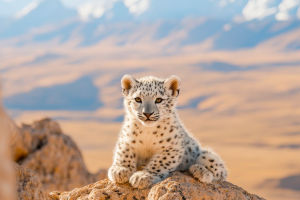Hi Lykkers! Just like humans, animals need balanced nutrition to grow, stay healthy, and perform well. Whether it's a farm animal, a household pet, or a zoo resident, their diet directly impacts how they move, feel, reproduce, and resist disease.
But animal nutrition isn't just about feeding—it's about understanding what to feed, how much, and why.
In this guide, we'll take a relaxed but meaningful look at the core of animal nutrition. From daily dietary needs to designing the right feed for specific animals, you'll learn how nutrition influences animal health, behavior, and productivity. Ready to dive into what powers your furry, feathered, and finned friends from the inside out? Let's go.
Part 1: Understanding Nutritional Needs and Feeding Basics
To support any animal's well-being, you first need to understand what goes into their ideal meal. Each species, and often each individual, has its own requirements.
Macronutrients: Energy and Building Blocks
Animals need three key macronutrients: carbohydrates, proteins, and lipids. Carbohydrates are a main source of energy. Proteins help build and repair tissues. Lipids provide energy and help maintain healthy skin and cells.
Different species need different ratios. For example, high-energy animals like dairy goats need more carbohydrates, while growing kittens may require extra protein. The key is balancing all three without overloading any one.
Micronutrients: The Invisible Essentials
Vitamins and minerals may be required in smaller amounts, but they're just as vital. Calcium, phosphorus, zinc, and vitamin A, for example, support strong growth, immune defense, and development.
Deficiencies or excesses can cause real health issues—like weak eggshells in birds or joint stiffness in dogs. You'll want to match these nutrients to species-specific needs, which vary by age, activity level, and even the season.
Water: The Most Overlooked Nutrient
Often forgotten, water is critical. It helps with digestion, temperature control, waste removal, and more. Always ensure animals have access to clean, fresh water—especially in hot weather or after physical activity.
Part 2: Feed Formulation, Monitoring, and Health Outcomes
Once you know what an animal needs, the next step is figuring out how to deliver it—effectively, consistently, and in a way that supports both well-being and productivity.
Formulating the Right Feed
Feed formulation means blending ingredients to meet nutritional goals. For example, you might combine grains, legumes, and supplements to make a balanced diet for sheep. Formulated feeds can be pelleted, ground, or loose, depending on the animal's digestive system and habits.
Use caution when selecting ingredients. Quality matters—moldy grains or spoiled leftovers can cause illness. And don't forget to adjust rations for growing animals, pregnant females, or older animals that need a lighter diet.
Many farmers and zookeepers use nutritionists or feed calculators to design exact rations. If you're caring for pets, rely on trusted brands and seek advice from vets for any special needs.
Watching for Signs of Nutritional Health
You can often see whether an animal is well-nourished. Healthy coats, bright eyes, steady growth, and strong movement all point to balanced nutrition. On the flip side, poor appetite, dull fur or feathers, slow recovery, or irregular behavior might signal a problem.
Make it a habit to monitor animals regularly. Weigh them periodically, note any changes in eating patterns, and observe stool consistency and energy levels. These everyday clues can help catch problems early.
The Impact on Performance and Longevity
Good nutrition isn't just about survival—it's about helping animals thrive. For example, laying hens with the right diet produce more eggs with better shells. Working animals stay energetic longer. Pets live more comfortably and age more gracefully.
And beyond performance, proper nutrition reduces the risk of disease, lessens vet costs, and supports breeding success. It's a foundation that improves life from the inside out.
So Lykkers, animal nutrition is more than just filling a bowl or trough—it's a thoughtful, ongoing practice rooted in care and science. By learning what animals truly need and how to meet those needs through balanced feed and regular observation, you're helping create healthier, happier lives. Whether you're raising animals or just curious about how they work, good nutrition is where it all begins. Let's keep feeding minds and creatures with knowledge and kindness.


